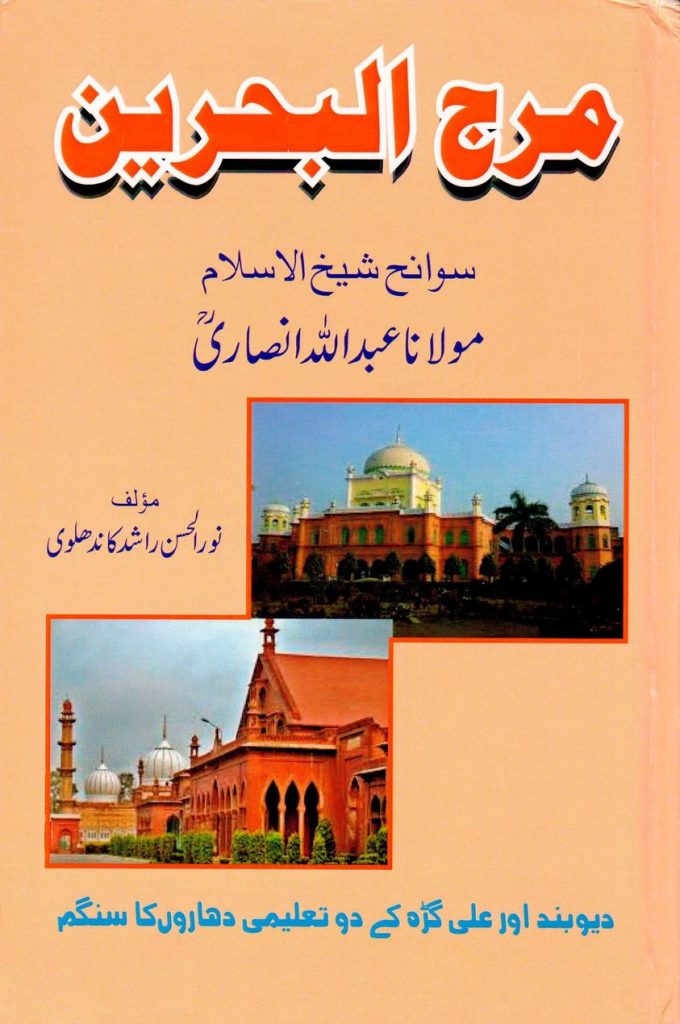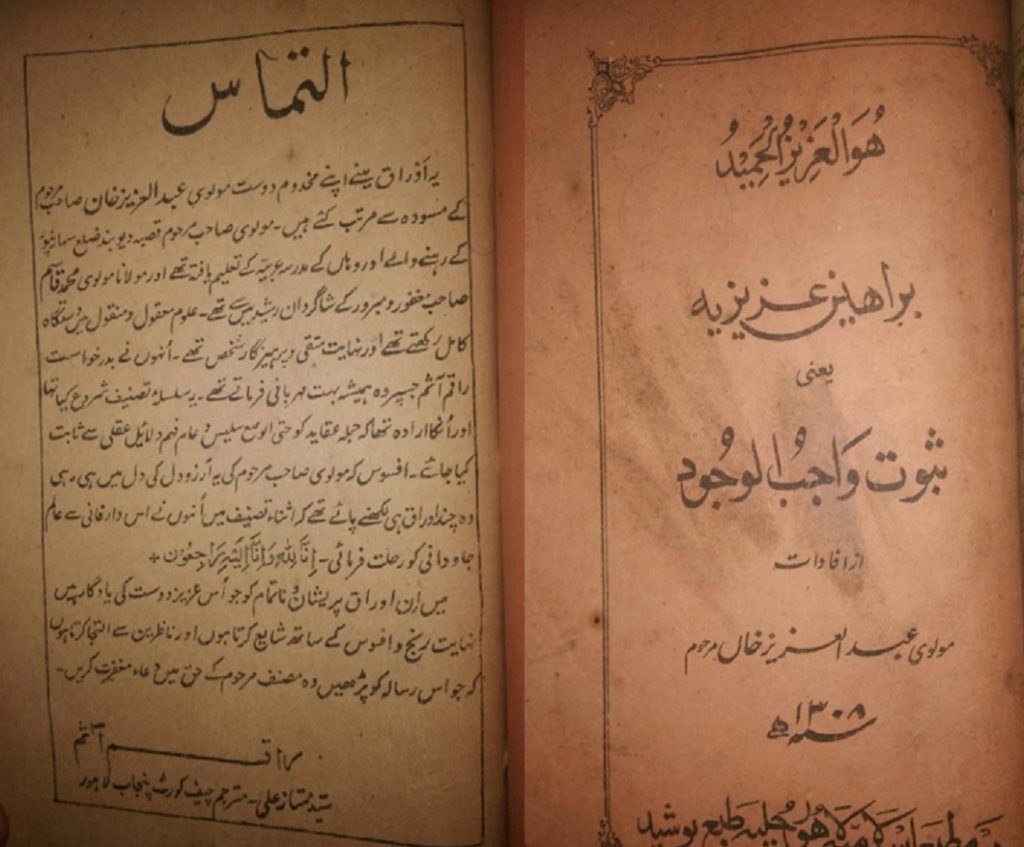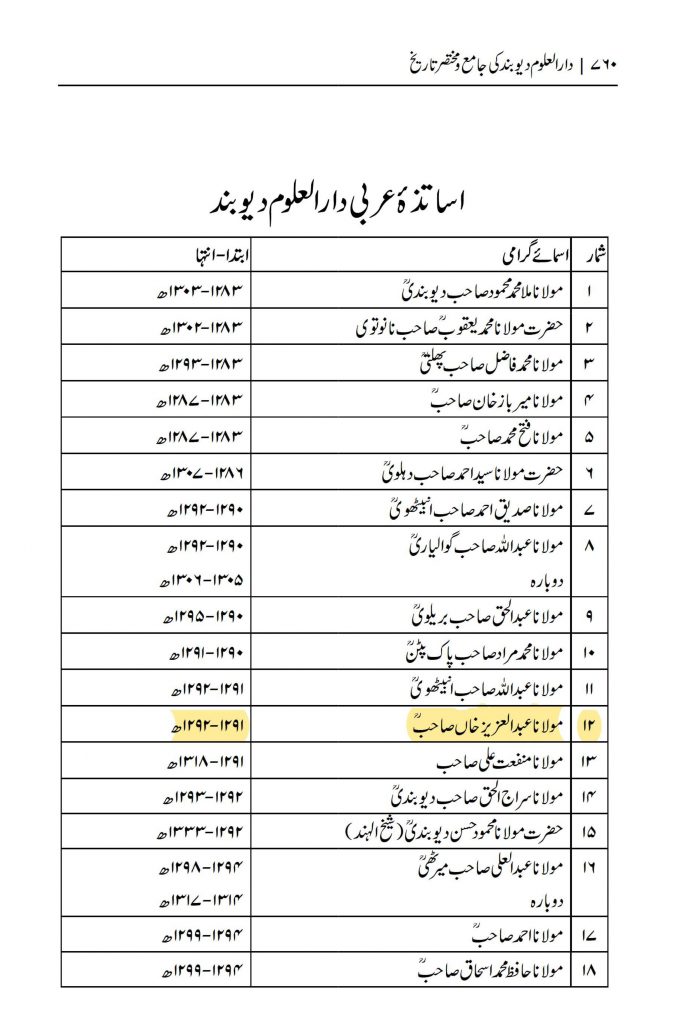
Marajul Bahrain (The Merger of two Seas)
Author: Noorul Hasan Rashid Kandhalvi
Reviewed by M Ghazali Khan
Pages: 256
Price: 300
Publisher: Iqra Educational Foundation, A-2 Firdaus, 2 Veer Savarkar Road, Mahim (W) Mumbai 400016, India
Email: contact@iqraindia@org
Website: www.iqraindia.org
Almost 150 years have passed since Sir Syed launched his Aligarh Movement and established the Muhammadan Anglo-Oriental College (now AMU) in Aligarh. But sadly, the campaign of slurs, innuendoes, and ridicule against a sincere and committed benefactor of the community and a great educationist goes unabated. A section of Muslims continues, unabashedly, to stoke hatred against him. If my words sound harsh then please listen to this.
But in contrast to such a lot, some individuals study history with an open mind, analyse past events objectively and present facts as they have been recorded. One such scholar is Noorul Hasan Rashid Kandhalvi, who has dug out and published rare information on the relationship between MAO College, Darul Uloom Deoband, and the founders of these two institutions in his book Marajul Bahrain—literally meaning ‘merger of two seas’.
Although the book is supposed to be a biography of Maulana Abdullah Ansari, a great scholar, who has gone missing in the pages of history, this is also an invaluable documentation on the closeness and cooperation between Aligarh and Deoband in the early days of their inception and at a time when the divide between what is called secular education and religious education looked insurmountable.
Piles and piles of books have been written on the hostility of Muslim theologians towards secular or western education. What has been described in these scholarly works is not entirely untrue. But the allegation that Deoband had declared an all-out war against Sir Syed is a brazen distortion of facts, for, at a time when the Muslim clergy had launched a vicious campaign to declare Sir Syed an apostate, deserving to be killed, the founder of Darul Uloom Deoband, Muhammad Qasim Nanautawi had not only refused to become part of this campaign but went as far as expressing his adoration and admiration for him and his work. For example, responding to a question raised by a common friend Maulana Qasim wrote:
‘Peerji Saheb, this sinner never indulges in arguments with anyone. And why should he? What is there so important to warrant him to involve himself in challenging someone and indulge in a fight? What is the need to disrupt my own good pursuits and get involved in this selfish controversy? There is no doubt that I am an admirer of what I have heard about Syed Saheb’s high-thinking and his heart-felt concern and anguish for the Muslims. It will therefore be justified to express my love for him on this account. However, I am equally, or maybe a bit more, grieved and doubtful by what I have heard about his flawed beliefs.’ (Tasfia-tul-Aqaid page 6)
(This excerpt is from a 39-page booklet in which two great personalities of their time are addressing each other through Peerji Muhammad Arif Saheb. On three pages Sir Syed is clarifying his position while rest of 36 pages contain Maulana Qasim Saheb’s response in which nowhere does he express any hatred against Sir Syed or his disapproval or opposition to western education.)
Please, have a look again at this tribute to Sir Syed by Maulana Qasim: ‘There is no doubt that I am an admirer of what I have heard about Syed Saheb’s high-thinking and his heart-felt concern and anguish for the Muslims. It will therefore be justified to express my love for him on this account.’ (Emphasis mine).
In addition to the rare and well-researched information provided by the author, Marajul Bahrain carries interesting articles by two great-grandsons of Maulana Abdullah Ansari—Late Dr Abidullah Ghazi and Muhammad Tariq Ghazi— Maulana Saud Qasmi, former Dean of Theology Department of AMU and by Dr Rahat Abrar, Former Public Relations officer AMU.
At the time when the storm raised against Sir Syed by Muslim theologians was at its peak, Maulana Qasim’s student, son-in-law and nephew took an even more daring step and joined Sir Syed’s MAO College. But this was not an easy decision. For this, he had to earn the displeasure of some of his spiritual guides. Giving an example of this Dr Abdullah Ghazi quotes Haji Imdadullah Muhajir Makkias having written toMaulana Rasheed Ahmad Gangohi:
‘I am surprised to hear about Maulvi Abdullah. Alas! Despite his claim to be a sufi and the progeny of pious ancestors, he has joined the college which to the ulema-e-Akhirat [scholars whose all emphasis is on the hereafter] is [a symbol of] atheism and which is against faith and religion. And that, as you have written, he has joined the school of naturalists with my permission, is, all praise be to God, is a big accusation… Ulema-e-Akhirat do not regard those associated with this college as religious people. On the contrary, they view them as against religion, be they the scholars or the sons of pious ones…’
Dr Abidulla Ghazi writes:
‘Maulana Ansari had taken such a decision, against the advice of his spiritual guide, and in violation of the principles and etiquettes of [spiritual] allegiance, because of the bright prospects for propagation and preaching [of religion] in Aligarh. But neither Maulana Ansari broke his allegiance; nor did Haji Imdadullah excommunicate him from the circle of his vicegerents. However, it must have definitely affected his relations with Haji saheb and other scholars of Deoband.’
But what was it that warranted Maulana Ansari to earn the displeasure of his spiritual guides? Dr Abidulla Ghazi writes:
‘(1) Maulana Abdullah Ansari’s joining Sir Syed’s mission earned it extraordinary support [from the laity as well as from the ulema]. Those who were so far reluctant [in cooperating with Sir Syed] joined his mission; those who were already associated with it, became fellow travellers; (2) By establishing a theology department and preparing a syllabus for it, following the established traditions of madarsas, he removed the prevalent doubts about Sir Syed’s beliefs. (3) Maulana Ansari’s presence in the institution and his teachings and training to the students created an atmosphere that protected [and promoted] ibadat [worship] and [Islamic] customs. (4) Several institutions in the country benefited from the academic status and work of Maulana Ansari. He made special contributions and provided guidance in the establishment and development of Nadwatul Ulema. (5) The presence of Maulana Ansari [in AMO College] served as a bridge between the ulema and modern intellectuals that paved the way for the mutual cooperation in future. (6) Maulana Ansari’s initial work paved the way for the establishment of Faculty of Theology with separate departments of Sunni and Shi’a theology, Islamic Studies, Arabic, Persian and Urdu.’
Abidullah Saheb adds:
‘Sir Syed’s extraordinary appreciation of the services rendered by Maulana Ansari may be judged from the fact that he came up to the expectations Sir Syed had of him and there was not even a slight dent in his respect [for Maulana Ansari] until his last breath [so much so that] he appointed him to be the Imam in his last journey.’ [made a bequest that Maulana Ansari lead his funeral prayer.]’
As for those whose minds are unclear about Sir Syed’s mission even after 150 years, maybe this letter written by Sir Syed, before Maulana Ansari’s appointment would open their eyes. The book contains the full text of the letter. But because of its length, I am producing the translation of some excerpts from it:
‘…Madarsatul Uloom is a place where the majority of the youths are Muslims. Inculcating in them piety; inducing them to adopt high morals, in accordance to the teachings of the Holy Prophetﷺ; spreading the love for Islam; making them adhere to Islamic duties; creating in them aversion for violence, highhandedness, biases and prejudices, and leading towards godliness is a religious duty and highly rewarding [with God]… Maulvi Abdullah is the son of Maulvi Ansar Ali, grandson of Mamlook Ali, son-in-law of Moulvi Muhammad Qasim. I had personal acquaintance with these pious personalities. I hope that by virtue of being in the company of these pious figures, Maulvi Abduallah has imbibed these qualities and he will perform these tasks as his religious duty and by virtue of his love for Islam.… The tasks that I expect of him during his stay in the madarsa [MAO College] can be summarised as follows. Firstly, he manages the mosque’s affairs, and himself leads five times prayers… This will increase the number of students attending the congregation and enhance their zeal to attend congregational prayers. Secondly, [I expect him to] give a lecture after Friday prayer or, at times, after any of the daily prayers. The students of the College are themselves well educated and know various sciences. [Therefore] This will benefit them immensely if, from time to time, they are briefed about the high morals and noble practices of the Holy Prophetﷺ, virtuous deeds and the conduct of his companions and other religious scholars [and are told about the importance of] piety, love for God, performance of religious duties with sincerity; respect for parents and teachers, mutual sympathy among Muslims, the beauty and simplicity of Islam; Oneness and Greatness of God, the beauty of the Holy Qur’an and the teachings of the Holy Prophetﷺ … My real aim is to create love in the hearts of the students for daily-five-times-prayers, make them realise the importance of offering prayers with jama’t [congregation] and enthuse them with it… [I also want] Those who are absent from prayers be questioned and be persuaded to change their habit… Those who are absent from prayers without any [acceptable] justification… Maulvi Saheb [Maulana Abdullah Ansari] should talk to them privately, do some counselling and explain to them that they should pray and join the congregation … To be precise, in comparison to the worldly punishments administered by the Principal, such affectionate counselling would be more effective.’
These excerpts from a long letter penned by Sir Syed should leave no doubt in anyone’s mind about his real mission and about what he wanted to achieve through this college. Commenting on the impact of religious education and students’ attitude towards religion, Noorul Hasan Rashidi writes:
‘The need of instilling the importance of prayers in the hearts of the students, [asking Maulana Rashidi to] lead prayers himself, and the preaching and counselling that Sir Syed has emphasised upon in his letter, had started showing its effectiveness from the very early days…’
He writes: ‘Maulana Abdullah Ansari’s efforts had created such a discipline in the students that they had willingly become punctual in prayers and used to attend the mosque in such large numbers that the mosque used to be packed, and students were visible all around.’
In this context, he quotes a letter by Allama Shibli Nomani in which Shibli narrates:
‘Maghrib prayer? Praise be to Allah! What a magnificent sight this is! One’s heart starts bouncing with excitement [at this scene]. Syed Saheb [Sir Syed] too joins the prayers. Because he happens to be an Ahl-e-Hadith, he loudly pronounces “Ameen”. The echo of his “Ameen” increases, even more, the state of one’s religious zeal. I feel proud that I have played some part in creating this new life [in the college].’
Commenting on the last sentence of Shibli, the author opines:
Maulana Shibli has given the impression that the change in the students and their interest in religion is the result of his training. It is possible that Shibli had also taken part in giving this training to the students. But Shibli did not have much contact with the Department of Theology, and he only lectured on Qur’an attended by the students with keen interest. Students’ attendance in prayers in large numbers and their keen interest in religion resulted from Maulana Abdullah Ansari’s hard work.
The very special status that Maulana Ansari enjoyed at Aligarh was that not only was he the first Dean but he was appointed in contrast to the standard procedure and through Sir Syed’s personal decision in which neither the members of the College nor the administration were entitled to interfere.
Would that the administration, teachers and the students of AMU had read the rare references and excerpts quoted by the author. But, alas, what to talk of the present generation decline had started in Sir Syed’s own time. Writes Noorul Hasan Rashid:
‘But even during his own life there came such a turning point in this movement that it started losing focus and subsequently these objectives disappeared from sight. What to talk of the real aims and objectives even if a glimpse of these is shown to those who are associated with Aligarh [today], they would react with aghast and say: “was it really so?”’
Countless writings by individuals and coteries with vested interest are replete with misquotations and distorted write-ups of Sir Syed. Rarely would such people refer to this message from him to the youths:
‘It is Islam that you have to live and die with, and you will have to protect it. What is it to us, if anyone among the children of our community rises as high as the shining stars in the sky but does not remain a Muslim? The only progress made while also establishing Islam is the real welfare of the community. We hope that you will always uphold Islam and will progress along with it. It will benefit you and bring prestige to the community, and future generations will benefit from it too.’
Except for the differences between Sir Syed and the Deobandi Ulema, their relationship was pretty cordial in the formative years of these two movements. As far as Sir Syed is concerned, he regarded the presence of Maulana Abdullah as a good omen and a blessing for the college. Sir Syed’s love and respect for Maulana Qasim Nanotvi is evident from his condolence note on him quoted by Dr Rahat Abrar in his essay in the book. Here are a few excerpts:
‘Time has mourned deaths of many and will lament on the deaths of many more in future, but to mourn the death of someone who seemingly leaves no successor to replace him is a matter of great sadness and pain. There was a time when among the ulema of Delhi, some were known and respected for their piety and knowledge. Equally, they had no match in their simplicity and humility. People thought that there would [perhaps] be no one like Maulvi Ishaq in quality after him. However, through his exemplary piety, virtuous values and simplicity, Maulvi Qasim has proved that Allah did produce another one with these qualities, perhaps, more superior than him as far as these qualities are concerned. Even those who disagreed with him on issues would admit that in this time and age, he had no match — he might not have been as deep in knowledge as compared to Shah Abdul Aziz, but in other aspects, he was superior to him. If he was not superior to Maulvi Ishaq in matters of humility, piety, and virtuousness, he was not inferior either. He had an angelic nature and angelic qualities. The departure of such a personality is very painful and tormenting for all those who survive him.’
After receiving the first report published by Darul Uloom Deoband, Sir Syed expressed his impressions thus:
‘Deoband is a small town. Although not a very famous city, by looking at the resolve, determination and pious thinking of its residents, one is forced to give it precedence over well-known cities… Hats off to them, that due to their concern, there has been tremendous progress in quantity and quality within a short period.’
Maulana Abdullah Ansari’s family tree goes back to one of the most prominent companions of the Prophetﷺ, Abu Ayyub Ansari. On this aspect, the book contains a detailed and interesting article by Tarq Ghazi saheb.
An incident, narrated in the book, of the earlier days of the College that relates to the hard work by Maulana Abdullah Ansari and the atmosphere created by him would be of interest to the readers.
The king of Afghanistan Ameer Habeebullah Khan had come to visit the college. When he was taken to the Department of Theology, he refused to give any opinion without testing the boys. For this Maulana Abdullah selected and presented 50 students for the test. The King picked up some of them and asked them to sit close to him. He then asked a student to recite any verse from the Holy Qur’an that he could remember. The student recited a part of Sarah Ali ‘Imranin his beautiful voice in the Egyptian style. The recitation mesmerised the audience. Tears were flowing from the King’s eyes. As the boy finished recitation, the Ameer stood up and made a speech. At times he spoke in Urdu, Persian and English, and kept saying that whatever had been reported to him about the college was wrong.
Later he admitted that he had deliberately asked difficult questions on Islamic jurisprudence and said: ‘I have tested the students and satisfied myself. And now my answer is that everything is fine here, and I am very pleased.’
Reviewer’s Personal Gratitude to the Author:
As someone who does not only come from Deoband but studied at Aligarh as well, feeling indebted to the author is only natural. But now, a very personal reason has been added to this sense of indebtedness.
In my childhood, I had heard from my grandfather, Hafiz Abdul Jalil Khan, and other elders in the family that the grandfather of my grandfather Maulana Abdul Aziz Khan was in the first batch of graduates of Darul Uloom Deoband. They said that he had also taught at this great institution. Among the relatives in Deoband, it is common knowledge that Maulana Abdul Aziz Khan was a great scholar. According to my grandfather, Maulana Abdul Aziz Khan had a strong inclination towards Sufism and devoted much of his time to studying and worshipping. Family sources say that he had a vast personal library, but because no one could carry his academic legacy and look after his books, all of them were donated to Darul Uloom Deoband. His son and my great-grandfather, Abdul Hafeez Khan, was more interested in local politics and little zamindari. He was also an elected member of the local municipal board.
We had heard these stories since our childhood. Still, when Maulana Abdul Aziz Khan’s name was not included in the list of either the students or the teachers published at the centenary celebrations of Darul Uloom Deoband, I, along with other youths of the family, started suspecting the authenticity of what we had been hearing about Maulana Abdul Aziz Khan because all of these were mere oral claims unsubstantiated by documentary evidence. Noorul Hazan Kandhalvi Saheb has indeed done a tremendous personal favour to me and to my family members by providing documentary proof of it.
After seeing Maulana Abdul Aziz’s name in the above-reviewed book, I thought to have a look at ‘Darul Uloom Deoband ki Jame wa Mukhtasar Tareekh’ (A Comprehensive and Brief History of Darul Uloom Deoband). Thankfully this too has his name on page 760. Please see the scanned image below.
Some excerpts from Marajul Bahrain:
‘Generally, it is written and said that the first batch of the graduates of Darul Uloom Deoband was the one that included Hazrat Maulana Ashraf Ali Saheb Thanvi. But despite being prevalent and often referred to in writings, this is not true. The fact is that the first batch of the graduates of Darul Uloom is the one that included Maulana Adullah Ansari et al. It is they who have the credit of being the first graduates of Darul Uloom. Classmates of Maulana Ansari, who have been mentioned in the Roodad [minutes] include:
‘Maulvi Mohammad Murad Pak Pattani, Maulvi Abdullah Khan, Maulvi Abdullah Sahi Anbaitvi and Maulana Abdul Aziz Khan about whom it is claimed that this was the very first batch of the graduates of Darul Uloom.

‘…After the foundation laying [of Darul Uloom] In Muharramul Haram, 1283H (May 1866) when the list of students, who had been awarded degrees was published in 1289H, 1872AD, it had the names of Maulvi Murad Saheb Pakpattani, Malvi Abdullah Khan Saheb Gawaliari, Maulvi Abdul Aziz Khan Saheb Deobandi and Maulvi Abdullah Ansari Ambatvi. The Madarsa [Darul Uloom] Deoband had declared them its first batch of graduates and were awarded degrees. By that time, Dastarbandi [ceremony of putting turbans on their heads] had not been introduced….
‘The Madarsa [Darul Uloom Deoband] had established a good practice since the very beginning that the best answers on the [text] books included in the annual exams used to be included in the annual report of the madarsa. Following this principle, the questions asked in the exam and the answers given by the first batch of students were also published… It included the answers provided by … Maulana Abdul Aziz Khan Deobandi… These answers reflect the high calibre and deep study, deep thinking and the grasp of the students on the subjects…

